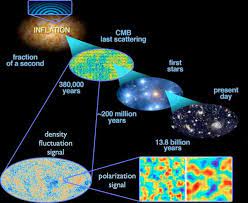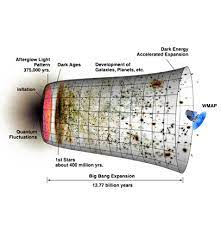The Origins of the Universe: Understanding the Big Bang and Beyond.
Introduction
The origins of the universe have been a subject of fascination and inquiry for centuries. Today, we have a relatively good understanding of the universe's beginnings, thanks to the Big Bang theory. In this article, we will explore the origins of the universe, including the Big Bang theory, the evidence that supports it, and what we know about the universe's early moments.
The Big Bang Theory
The Big Bang theory is the most widely accepted explanation for the origins of the universe. According to the theory, the universe began as a singularity, a point of infinite density and temperature. This singularity then expanded rapidly, creating space and time as we know them today.
The evidence for the Big Bang theory is based on observations of the cosmic microwave background radiation, which is the afterglow of the Big Bang. This radiation was discovered in the 1960s and is still visible today, providing strong evidence for the Big Bang theory.
The Early Universe
The early universe was a hot, dense, and rapidly expanding place. Within the first second of the Big Bang, the universe had expanded to a size of around 100 trillion kilometers, and its temperature had dropped to a still-searing 10 billion degrees Celsius.
During the first few minutes of the universe's existence, atoms began to form, and the universe became transparent to radiation. This allowed the cosmic microwave background radiation to be emitted and detected billions of years later.
The first stars and galaxies began to form around 400 million years after the Big Bang, as the universe continued to expand and cool. Over billions of years, these galaxies evolved into the complex structures we see today.
Beyond the Big Bang
While the Big Bang theory is the most widely accepted explanation for the origins of the universe, there are still many unanswered questions about the universe's origins and evolution. One of the most significant questions is what happened in the first moments after the Big Bang.
According to current theories, the universe underwent a period of rapid expansion known as inflation, which lasted for a fraction of a second after the Big Bang. This inflationary period is believed to have smoothed out the universe's initial irregularities, creating the even distribution of matter and energy we see today.
Another unanswered question is the nature of dark matter and dark energy, which are believed to make up the majority of the universe's mass and energy. The nature of these mysterious substances is still not well understood, and scientists are working to uncover their properties and behaviors.
Conclusion
The origins of the universe are a subject of fascination and inquiry, and the Big Bang theory provides the most widely accepted explanation for the universe's beginnings. While there are still many unanswered questions about the universe's origins and evolution, we have made significant progress in understanding the early universe's moments and the forces that shaped it. As we continue to study the universe and expand our knowledge, we will likely uncover new insights and deepen our understanding of the universe's origins and evolution.






0 Comments:
Post a Comment
Subscribe to Post Comments [Atom]
<< Home